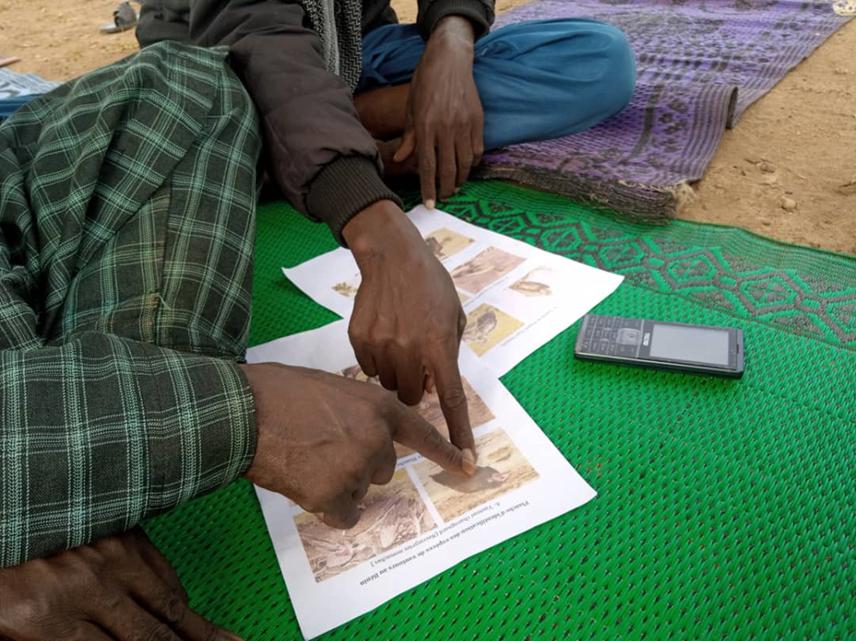Abdou-Wakilou Bio Keri
Understanding how people perceive and value wildlife, and how these perceptions can influence conservation outcomes is an important role for conservation ecologist in safeguarding the delicate balance of ecosystems and protecting species at risk. This is particularly evident in the case of the Hooded Vulture, a critically endangered species (BirdLife International, 2022) in Benin, facing a rapid decline (Ogada et al. 2016) in population due to a range of interconnected threats including indiscriminate poisoning, trade for traditional medicine, hunting for sustenance, persecution, habitat loss, and degradation. The estimated global population reduction of the Hooded Vulture is expected to exceed 80% in the next three decade.

Image illustrating an interview session in the commune of Kandi. The respondent points to the Hooded Vulture to attest to their knowledge of the species.
The significance of ethnoecology conservation becomes strikingly clear. The Hooded Vulture, although seemingly inconspicuous, plays a vital role in maintaining a healthy ecosystem. Its contributions extend beyond mere numbers; the species enriches biodiversity through its ecological specificity and its intricate role within biocenoses. Therefore, protecting and restoring the habitats and populations of the Hooded Vulture has emerged as a critical objective in biodiversity policies spanning local, regional, national, and international scales. The heart of this conservation effort lies within the W-Transboundary Biosphere Reserve in Benin, a key area for the survival of the Hooded Vulture. However, effective conservation requires more than just policy and intervention. A comprehensive understanding of the species' conservation status, distribution, and interaction with local communities is paramount. This project embarks on a journey to delve into these aspects, aiming to bridge the gap between scientific knowledge and community perceptions.
The objectives of this endeavour are twofold. Firstly, the project seeks to unravel the perceptions of local communities regarding the population trends of the Hooded Vulture and the evidence supporting its conservation. Secondly, the project strives to involve local communities in raising awareness and promoting a sense of responsibility for safeguarding Hooded Vulture around the W-Transboundary Biosphere Reserve in Benin.
Header: Individuals equipped with awareness tools, passionately advocating and enlightening the communities of Kandi about the significance of Hooded Vulture conservation.